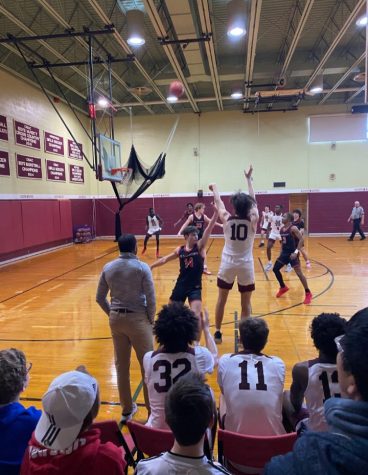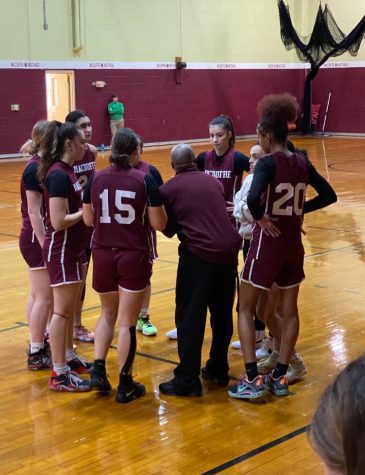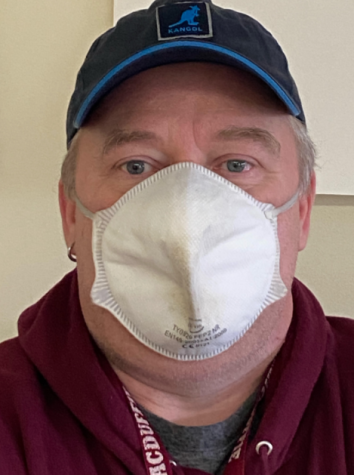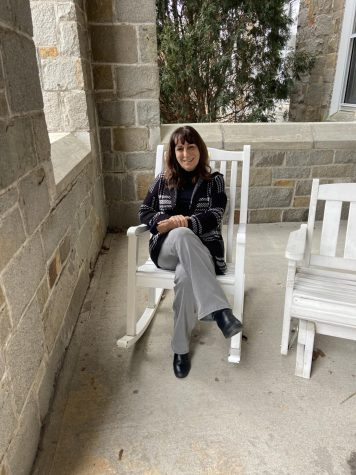Squire Places First in Bouldering National Championships
April 26, 2019
On February 2, 2019, MacDuffie Freshman Brian Squire won first place at the 2019 USA Climbing: Bouldering Youth National Championships in Redmond, Oregon. His victory was the culmination of a lifetime of training.
“Both of my parents were climbers,” Squire says. “So they kind of got me into it as soon as I was born.”
Squire has competed in the Bouldering Youth National Championships since 2011. However, he did not intend on participating in the championships this year. According to Squire, “Last year at nationals I did pretty poorly… I got forty-second [out of fifty]. So I was planning on just saving my money.”
Despite this, Squire had a last-minute change of heart.
“It was beginning to be a pretty good season for me and I kind of felt like I had something going,” Squire explained. “So I figured I would take a shot at it and go.”
His spontaneous decision certainly paid off. In fact, Squire said, “I think that’s one of the reasons why I did so well is because I really didn’t have any goals. I was kind of going into it thinking, ‘Alright, we’ll see how it goes.’”
This year, Squire went through numerous rounds of competitions before qualifying for the Bouldering Nationals. He began by attending local competitions. Then, he progressed to Regionals, where he competed against males in his age category from Western Massachusetts, New York, and Vermont. He was one of twenty competitors who moved on to Divisionals, where he faced climbers from the entire Northeast. It was at Divisionals that Squire qualified for the National Championships.
At Nationals, Squire competed in bouldering for three days. On the first day, he passed through Qualifiers. On the second day, he competed in Semi-Finals, where he took second place. He competed in Finals on day three.
Each day, Squire had to climb four routes on a fifteen to twenty foot wall. In bouldering, each route began with a start hold. The wall was divided into five-point, ten-point, fifteen-point, twenty-point, and twenty-five point zones. Each competitor attempted to reach the highest zone they could. They could take as many attempts as they wanted within a four-minute time constraint. However, each successive attempt deducted a tenth of a point.
According to Squire, “Attempts usually don’t take more than forty-five seconds to a minute. It depends on the climb. But usually you rest a little bit, get your energy back, and then you go for it again.”
Before the climb, Squire says, “you’re in isolation. You can’t see the routes or really know about anything that’s going on…you get brought out and you’re sitting in a chair facing the audience, so you can’t really see the climb.”
In order for all climbers to begin on equal ground, they are not allowed to observe their route before they compete. The first time they set eyes on the wall is when the timer begins for their turn to compete. “It is very stressful,” Squire admitted. “Especially when you can hear the audience cheering and the emcee and everything.”
Additionally, climbers have no way of knowing how well their competitors have done on the route.
“The way they do it is they try to make it so you don’t know anything about it,” Squire explained. “But you can hear the audience and you can hear the emcee going so you can kind of get a feel for how it’s going.” Loud cheers can be indicative that a competitor is doing well. However, Squire says, “it’s also hard because they could be cheering for someone in a different climb. So you don’t really know.”
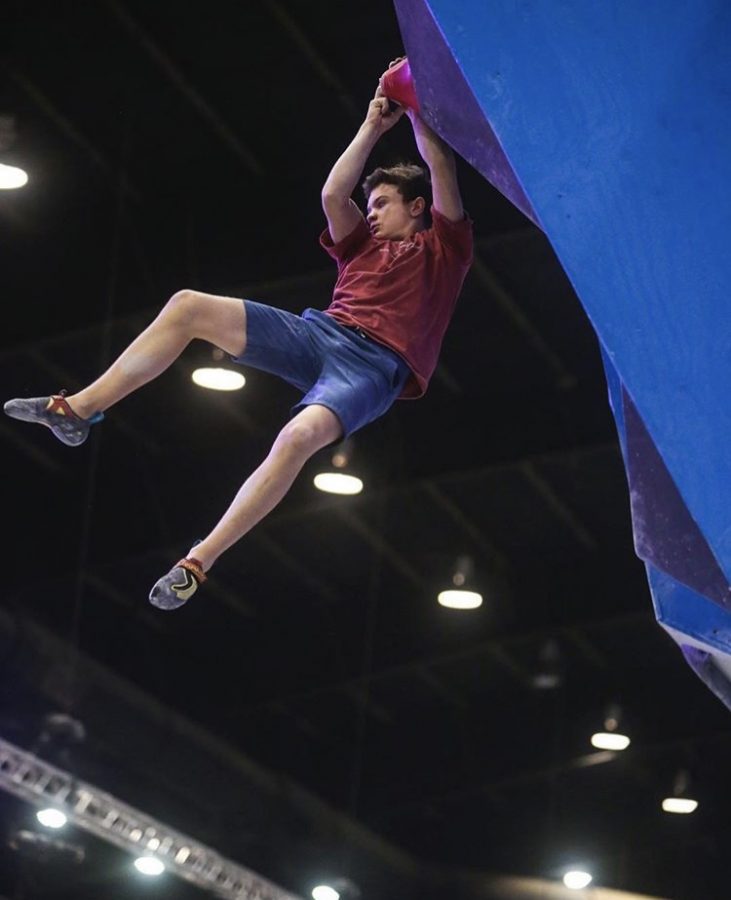
This year, Squire was familiar with most of his competition. Three of his contenders were close friends from New York and Boston. Others flocked from across the U.S., travelling from as far as California and Utah. Despite the distance, Squire recognized most faces from previous years’ Nationals. “I had run into them before, but I didn’t know them super well,” he said.
Two of Squire’s teammates from Central Rock Gym in Hadley, Massachusetts—one of which being Latin teacher Daniel Taravella’s son—accompanied him to Nationals. According to Squire, “This year was actually pretty bad for Central Rock. We only had three people going, and we’ve had eleven from our gym go before.”
However, he said, “Surprisingly, overall, given the amount of people we had, we did better than we have in years past.” Squire was the only climber from Central Rock to advance past semi-finals, but he thinks his teammates “both did really well.”
As one of the top three finalists at the Bouldering Youth National Championships, Squire was invited to join the U.S. team at the annual Youth World Championships. This August, the championships will take place in Arco, Italy.
In the upcoming months, Squire will be practicing for the Sport Climbing Youth National Championships. The Sport Climbing Championships will take place this July, and Squire said “that’s a totally separate competition.”
Typically, Squire trains at Central Rock for “about three to four hours…four or five days a week,” in which he performs a combination of climbing, finger strength, and endurance exercises.
If Squire does well at the Sport Climbing Youth National Championships, like he did at the Bouldering Youth National Championships, he will qualify to compete in sport climbing at the Youth World Championships this August.
In Arco, there will be all three disciplines of climbing represented: bouldering, sport climbing, and speed climbing. Squire hopes that he will be able to compete in both bouldering and sport climbing at the World Championships.



